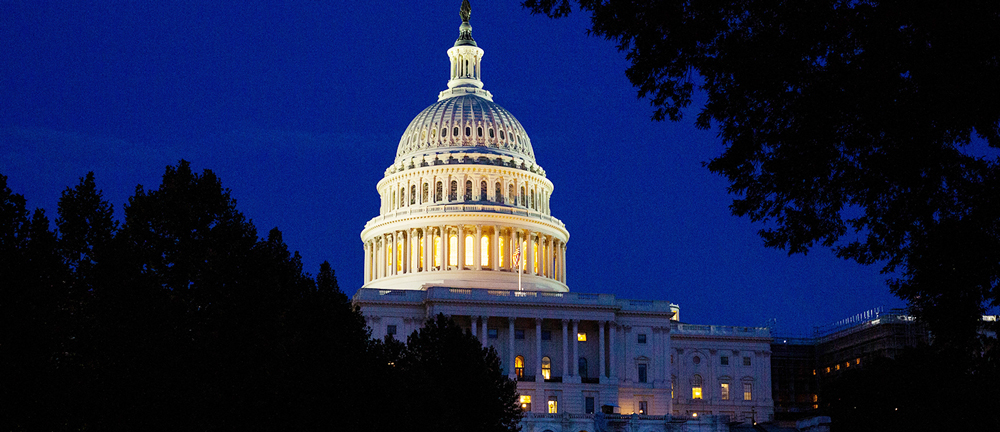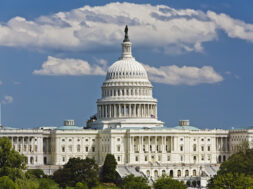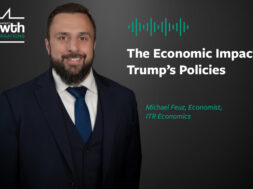Middle-Market Public Policy Roundup
The Federal Reserve is factoring in leveraged loan risks in its annual stress test of banks, and the central bank's chairman testifies before Congress.

In this week’s roundup, we look at how the Federal Reserve is factoring in leveraged loan risks in its annual stress test of banks, as well as the central bank chairman’s testimony before Congress. We also provide a summary of the Association for Corporate Growth’s comments on the Securities and Exchange Commission’s proposed changes to its advertising rules.
Regulators Elevate Leveraged Loan Risk in Bank Stress Test
As the use of corporate debt in private equity transactions continues to grow, regulators are highlighting it as a major source of risk in an annual assessment of large banks.
The Federal Reserve cited the threat of heightened leveraged lending for the first time in its annual Dodd-Frank stress test scenarios, which were published on Feb. 6. The stress test evaluates whether banks have enough cash to cover their operations during an economic downturn.
“This year’s stress test will help us evaluate how large banks perform during a severe recession, and give us increased information on how leveraged loans and collateralized loan obligations may respond to a recession,” Federal Reserve Vice Chair for Supervision Randal Quarles said in a statement.
In the worst-case scenario created by the Federal Reserve for this year’s test, the U.S. economy is subjected to a market shock that leads to double-digit unemployment. As earnings dry up, corporate borrowers struggle to maintain their financial health, resulting in a wave of defaults–a source of concern for the Fed.
Based on this adverse scenario, regulators expect private equity investments to experience larger market value declines than they did in previous scenarios due to increased leverage, the central bank reported.
Leveraged loans are a source of debt financing provided by banks and used in M&A, private equity buyouts and company expansions.
The leveraged loan market has grown dramatically over the past 20 years from about $100 billion in loans outstanding in 2000 to almost $1.2 trillion in 2019, according to a report from the Federal Deposit Insurance Corporation.
The stress test exercise will evaluate 34 large banks with more than $100 billion in total assets. The banks are required to submit the results of the stress tests to the Federal Reserve by April 6, and the results will be announced in June.
Fed Chairman Delivers Testimony to Congress
Federal Reserve Chairman Jerome Powell testified at the semiannual Humphrey-Hawkins hearing on monetary policy and the state of the economy before the House and Senate this week.
During testimony delivered on Feb. 11, Powell recited indicators reflecting a positive outlook for the U.S. economy in the near future, driven by 11 years of continued economic expansion, low unemployment and easing trade tensions. However, Powell said the Fed is concerned about growing domestic risks that include sluggish manufacturing and low labor force participation, and threats from abroad, including the economic impact of the coronavirus outbreak.
Chairwoman of the House Financial Services Committee Rep. Maxine Waters, D-Calif., scolded Powell for the decision by the Federal Reserve and other financial regulators to propose additional roll backs of the Volcker Rule in late January that would allow banks to invest in venture capital funds.
“The Dodd-Frank Act made our financial system safer, but it depends on agencies like the Fed to prudently use the tools available to monitor and mitigate threats to our economy,” she said.
Waters also asked the central bank chief to consider revising the riskiness of financial assets to reflect the growing threat that climate change poses to the economy, and to include climate risks into stress tests for banks.
A March 2019 report from the Federal Reserve Bank of San Francisco found climate change increases the risk to financial institutions by increasing the potential for loan losses and bankruptcies caused by extreme weather events. The Fed released its stress test scenarios for 2020 last week, which did not mention climate change as a source of risk.
“The assets exposed to climate change exceed the entire subprime mortgage prior to the global financial crisis,” Rep. Sean Casten, D-Ill., said at the hearing.
While the Fed is in its early stages of assessing how climate change will impact the economy, it remains outside the scope of central bank, according to Powell, who referred to the effects of climate change on assets as “a longer-term consideration.”
Next SEC Investor Advisory Meeting to Discuss LIBOR
The Securities and Exchange Commission announced the next meeting of its Investor Advisory Committee, which will occur later this month.
The agency gave little detail about the agenda of the public meeting scheduled for Feb. 27 when it was published in the Federal Register, but it mentioned that the committee would update investors on accounting and auditing trends, review subcommittee reports and discuss the potential impact of transitioning away from the London Interbank Offered Rate, known as LIBOR, which is due to take place by 2021.
According to some reports, the shift from the longstanding benchmark used in financial contracts to the Federal Reserve’s Secured Overnight Financial Rate or others could disrupt the stable credit environment the portfolio companies of private equity firms rely on. The transition may also require contracts with portfolio company stakeholders to be amended, adding another layer of complexity.
The SEC has invited the public to submit to the committee written statements, which must be received on or before the date of the meeting.
Trump Boosts SEC Budget
The Securities and Exchange Commission would see a bump in its funding under a budget proposal from the Trump administration.
The president’s budget for the fiscal year of 2021, which begins Oct. 1, calls for an increase to the SEC’s funding of 5.6% to $1.9 billion. Congress authorized $1.8 billion in funding for this year.
Lawmakers are expected to delay budget approval until after the 2020 elections in November.
“What we’re focused on is issues for the medium term,” he said.
Before the Senate’s Committee on Banking, Housing and Urban Affairs on Feb. 12, Powell and lawmakers discussed cryptocurrencies and how the central bank and other agencies will regulate the private companies planning to offer them.
“It seems to me that technological innovations in this space are inevitable and the U.S. should lead in developing what the rules of the road should be,” said committee Chairman Sen. Mike Crapo, R-Idaho.
On Feb. 5, Federal Reserve Governor Lael Brainard revealed in a statement that the Fed is exploring ways to issue its own virtual currency, labeled “FedCoin,” according to a report from Reuters.
ACG Submits Comments on Investment Adviser Advertisements Proposal
The Association for Corporate Growth submitted comments to the Securities and Exchange Commission applauding its proposal to update rules regulating advertising by investment advisers, but also said some changes don’t go far enough.
The association submitted the letter on Feb. 10, which supports the SEC in its decision to propose changes to the rule, known as the “advertising rule,” which regulates the communications that investment advisers can have with potential clients. However, the rule’s vague language has been an area of frustration for ACG members.
“Uncertainty as to the application of certain provisions of the Advertising Rule to today’s marketplace has long been a source of frustration for our members,” ACG President and CEO Tom Bohn said in the letter.
The rule hasn’t been meaningfully updated since 1961, and while revision is welcomed, the organization is concerned the proposed definition of “advertisement” is excessively broad and that administrative burdens may outweigh the benefits.
The SEC proposed modernizing the rule in November 2019. The comment period has ended, and the SEC will revisit the proposal later this year.
While the Fed is in its early stages of assessing how climate change will impact the economy, it remains outside the scope of central bank, according to Powell, who referred to the effects of climate change on assets as “a longer-term consideration.”
Are you an ACG member who enjoys reading the public policy roundup? Join our Public Policy Interest Group to receive even more in-depth coverage of federal policy activity impacting the middle market, as well as opportunities to help shape ACG’s advocacy efforts.

Benjamin Glick is ACG Global’s marketing and communications associate.


